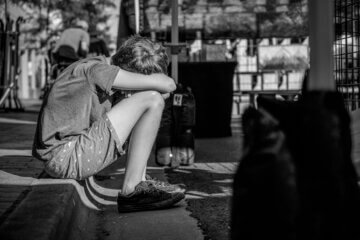A Case Study exploration
Dr Vassilia Orfanou, PhD, Post Doc
Writes for the Headline Diplomat eMagazine
Embarking on a journey through the complex landscape of conflict and crisis, our series of case studies aims to unravel the complex relationship between media, peace, and justice.
Each case study unfolds with an introductory article, paving the way for an in-depth exploration of that case study in the HD Publications section.
The spotlight now turns to East Timor, a nation whose quest for independence became a stage where the media played a dual role—both witness and catalyst. Throughout its tumultuous history, we find a narrative shaped by colonial legacies, geopolitical complexities, and the unwavering spirit of a people fighting for independence against Indonesian rule.
The stage is set with a taste of autonomy abruptly disrupted in 1975, leading to a prolonged struggle marked by complex negotiations and the resilience of the Timorese. This historical backdrop forms the basis for an international mandate, addressing human rights abuses and culminating in a crucial referendum.
The East Timor case study not only explores the geopolitical dynamics and associated complexities but also delves into the profound impact of media in shaping global perceptions. Acknowledging the potential of media to either disrupt peace or become a force for positive change, we witness the double-edged sword that journalists and news organizations wield in conflict zones. The East Timor conflict becomes a vivid illustration of this duality, where media not only witnesses atrocities but becomes a force for shaping global perceptions, mobilizing international action, and giving voice to the voiceless.
As our journey progresses, the interconnected world magnifies the influence of media in shaping public perception and influencing international responses to conflicts. The narrative unfolds, revealing the power dynamics within media coverage, showcasing its profound impact on shaping narratives and contributing to justice and reconciliation in the aftermath of conflict.
The East Timor case study serves as a poignant testament to the complex interplay between historical legacies, geopolitical forces, and the resilience of the people seeking self-determination. Examining its journey reveals the dual role of media as both a witness to atrocities and a catalyst for global awareness and action. The media’s impact on shaping perceptions and mobilizing international responses during the conflict exemplifies its potential for both positive contributions and detrimental effects on peace and stability.
In the context of the East Timor crisis, media played a significant role by offering early warnings and shedding light on escalating violence and human rights abuses, acting as a crucial informant for the international community. However, certain media outlets, influenced by sensationalism and biased reporting, contributed to the polarization of narratives, potentially escalating tensions. This dual nature of media influence emphasizes the paramount importance of responsible reporting in crisis situations.
Reflecting on East Timor’s history, it is incumbent upon us to recognize the responsibility of media in conflict zones. To foster a future where media contributes positively to justice and reconciliation, we must invest in ethical journalism, advocate for press freedom, and leverage technology for accurate reporting. Collaboration with local media outlets, ensuring the safety of journalists, and promoting diverse narratives are essential steps forward. The international community must stand united against any attempts to suppress media coverage and actively support independent journalism. By engaging with affected communities, allocating resources, and promoting responsible reporting, we can transform media into a potent force for understanding, justice, and reconciliation in the aftermath of conflict in East Timor.
Stay tuned for the upcoming case study, soon to be published.
Featured photo: Jan Skorupski: https://www.pexels.com/el-gr/photo/5567586/




